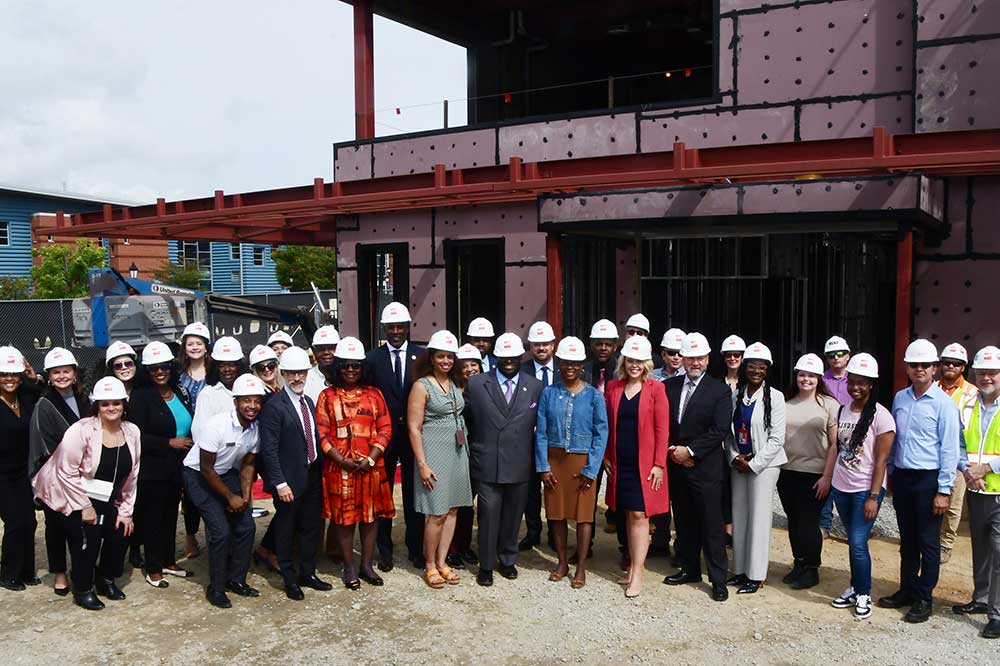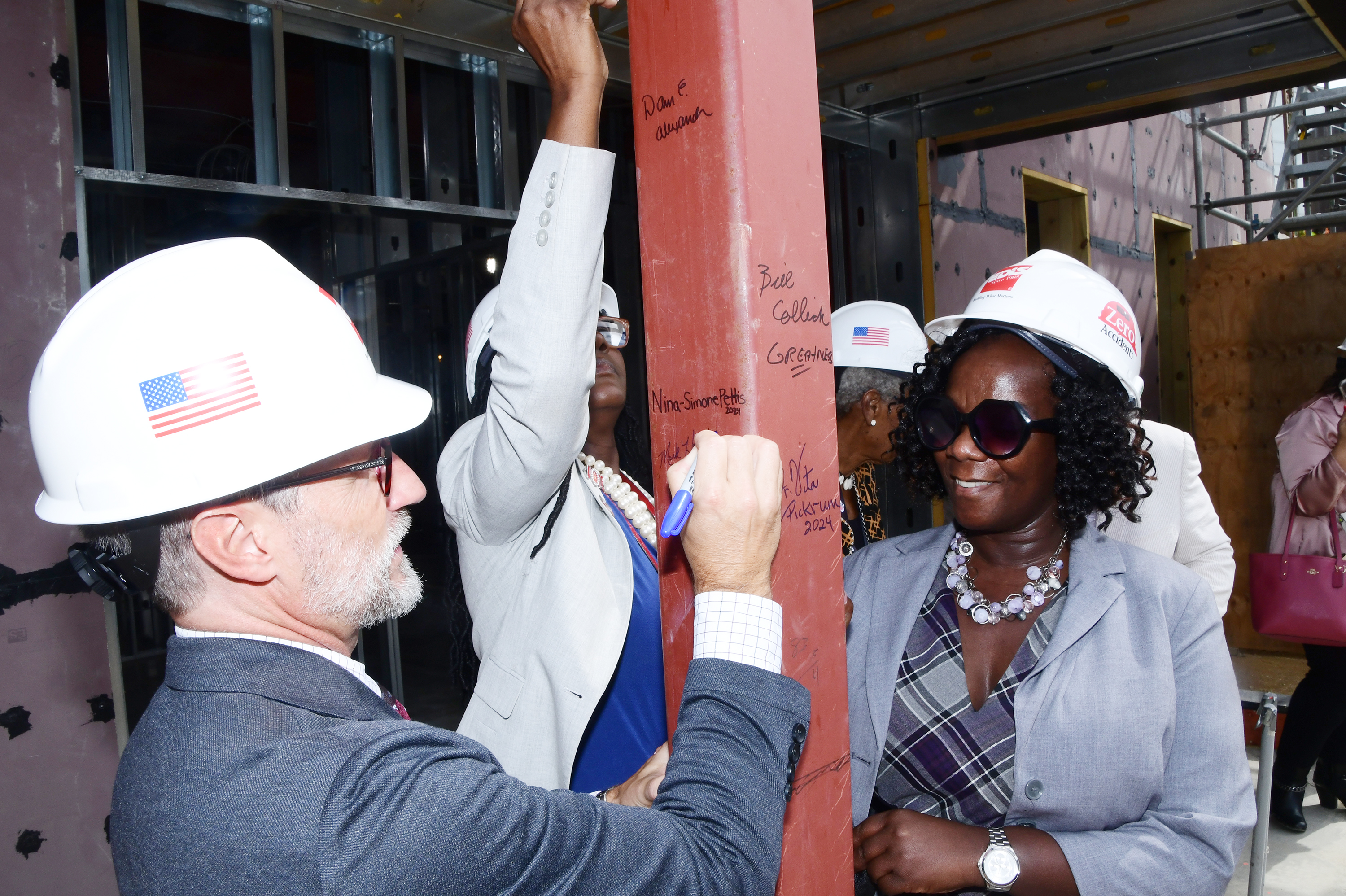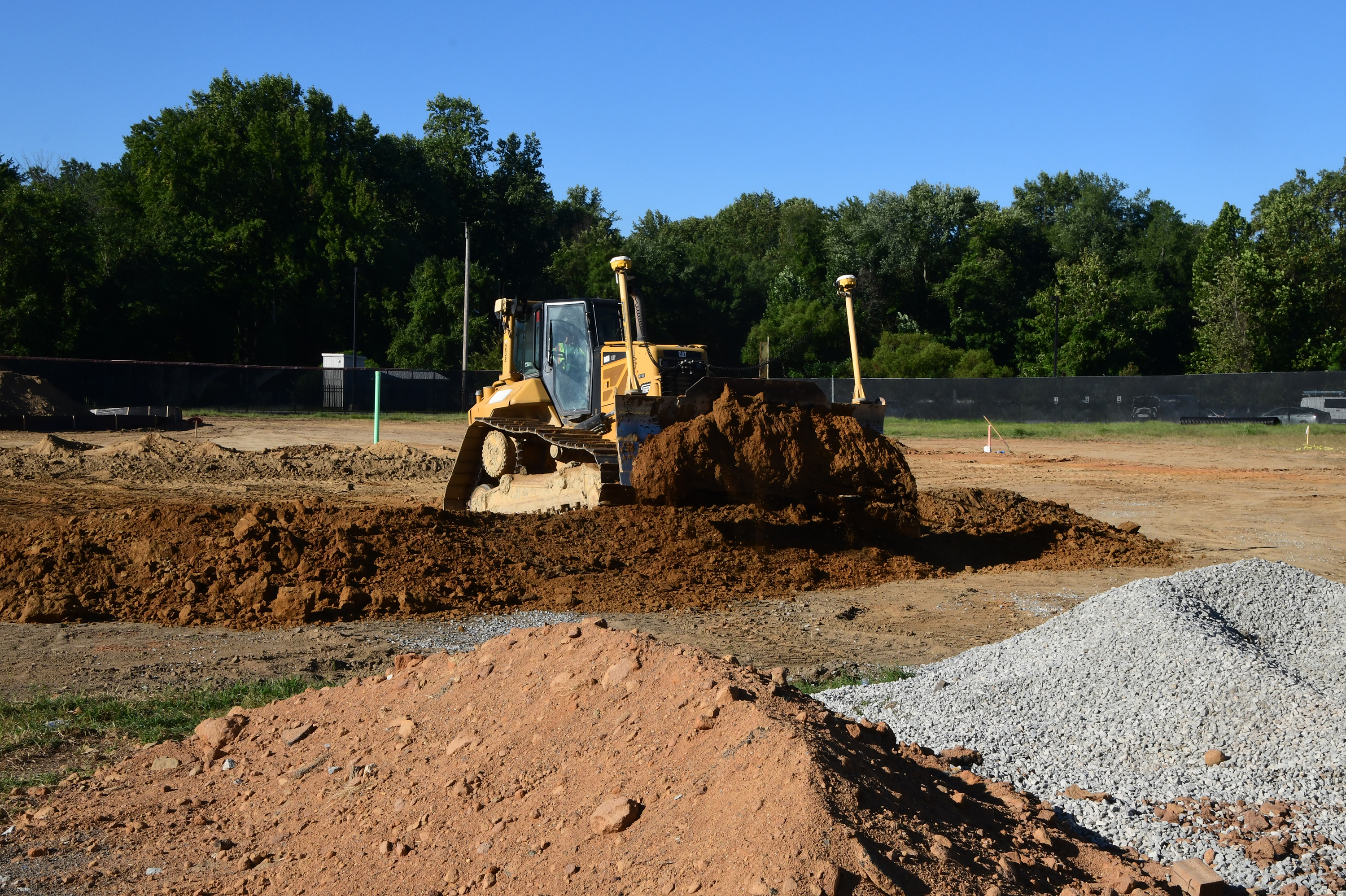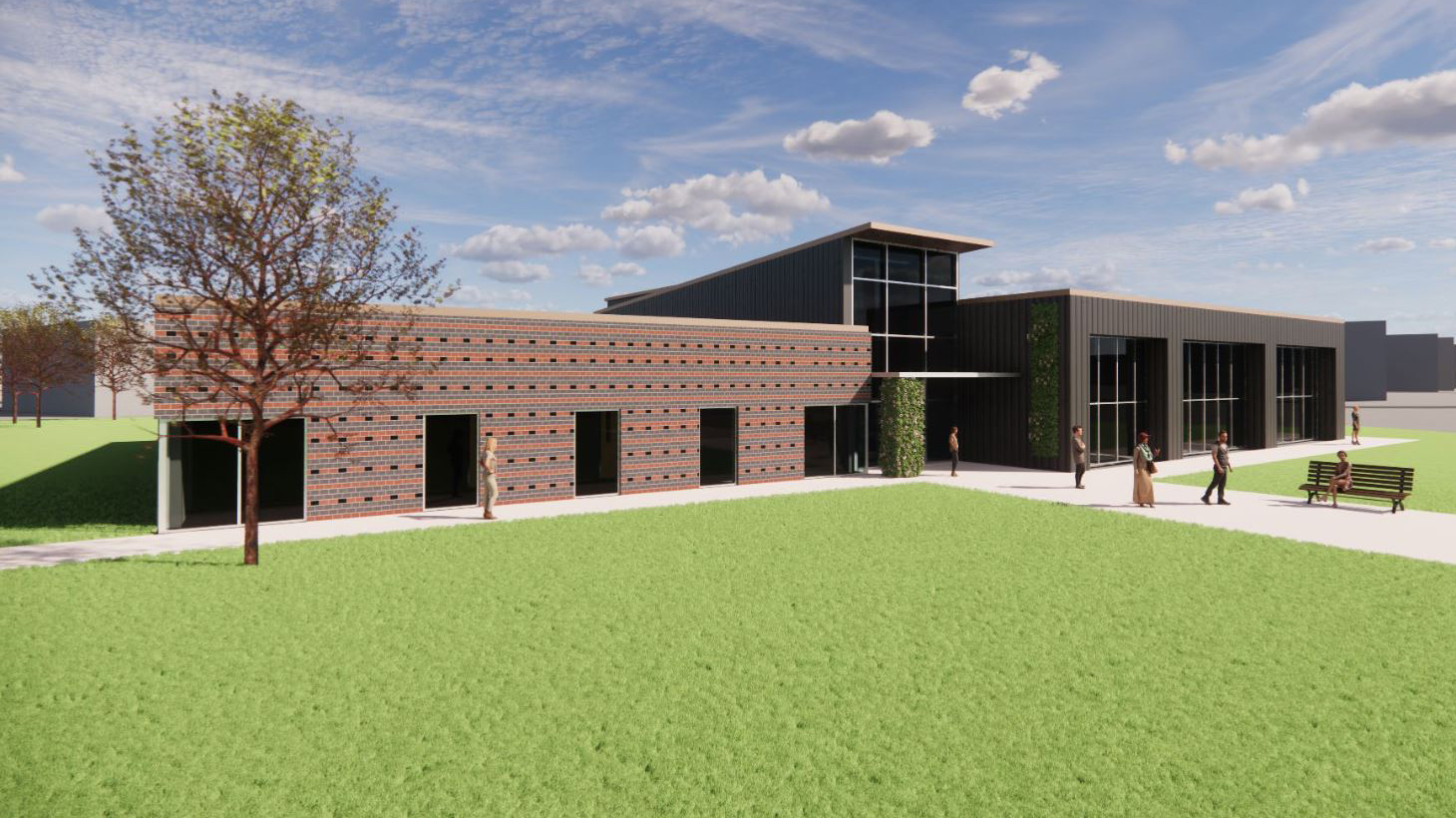
“Beam Signing” held at ECIC site; two building projects underway
With the construction of the Early Childhood Innovation Center (ECIC) halfway complete, some DSU and state Department of Education officials decided before the project gets any further along, they should literally add their signatures to the structure.
As a continuation of the celebration of work that has already started to upgrade the capabilities of childcare providers in the First State, a Sept. 25 “Beam Signing” event was held at the construction site.
Attending the event were DSU President Tony Allen, Delaware Secretary of Education Dr. Mark Holodick, ECIC Executive Director Dr. Kim Krzanowski, DSU Education Department Chair Dr. Shelley Rouser, as well as members of the DSU Board of Trustees and other University and state officials.
After some remarks about the ECIC work that will be housed in the new structure, attendees approached a steel beam one by one at the west entrance of the building and added their signatures to the beam.
The two-story building – projected to be completed by March 2025 – will house the University’s Early Childhood Lab School on its first floor. Its second floor will be for the Early Childhood Innovation Center, which is earnestly raising the standard for early childhood care by providing childcare providers with the opportunity to upgrade their capabilities and professionalism by becoming certified as a Child Development Associate.
The Delaware Secretary of Education said the ECIC initiative is the fruit of a great collaboration between various entities.
“It came about through partnerships between the Governor’s Office, the state Department of Education and Delaware State University, early childhood advocates and experts, all working to plan for an Early Childhood Innovation Center that does an outstanding job of preparing professionals to work with young children, while simultaneously providing a space for our youngest learners,” said Dr. Holodick.
DSU President Allen noted that while the building will be a great facility for the University’s Early Childhood Lab School, an even greater benefit will be for childcare providers. “More important is that this is making sure that our childcare providers in the state have the right education and training, something that they have been wanting and deserve,” Dr. Allen said.
Dr. Rouser said she is excited about the new building and the initiative that will continue within its walls. “The beam that is being signed today represents not only support to this building, but also the support that is going to happen inside of this building,” Dr. Rouser said. “Our youngest learners – our little Hornets – are going to get the support they need for a strong foundation to take them to K-12 and beyond.”
She added that there will also be support for adult learners. “We will have support for some who had given up on pursuing those extra credentials,” Dr. Rouser said.
The ECIC’s Dr. Krzanowski said the building reinforces the state’s commitment to Delaware’s early childhood community. “This building will allow the ECIC to grow, but it will allow us to support additional early childhood professionals as they obtain credentials and degrees,” she said. “This will also be open to the community and serve as a hub and a meeting spot for those who want to talk about innovation and how to implement it in classrooms every single day.”
The ECIC Building is one of two construction projects taking place on the DSU campus. West of the ECIC site, work has started on the construction of a new agriculture academic building.
Dr. Cherese Winstead Casson, Dean of the College of Agriculture, Science and Technology, said its new building will highlight sustainable agriculture throughout its innovative and inspiring building design of living walls and green roof elements featuring water-efficient irrigation systems and sustainable hydroponic technology, resulting in zero waste.
“The facility will strengthen the three pillars of the University’s land-grant mission, research, teaching and extension, while advancing technology and innovation,” the Dean said. “It will prioritize experiential learning and flexible research environments to accommodate community stakeholders through strategically designed collaborative spaces.”
Dr. Winstead Casson added that the building will offer lab spaces and interactive classrooms to serve multiple disciplines while harnessing students’ energy and the excitement of innovation.
This new 15,000-square-foot building – which will showcase state-of-the-art auditoriums and classrooms, high-tech greenhouses, a 21st Century Emerging Technology Center, Demonstration Kitchen, collaborative research laboratories, conference rooms and offices – is projected for completion in June 2025.

